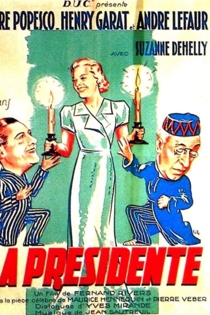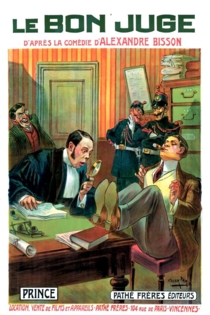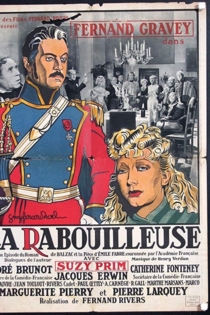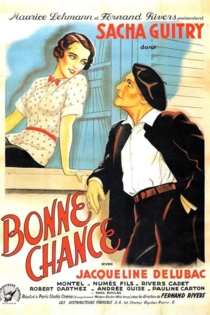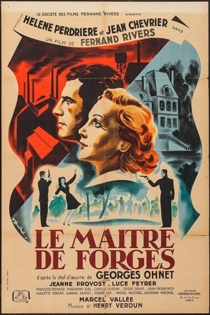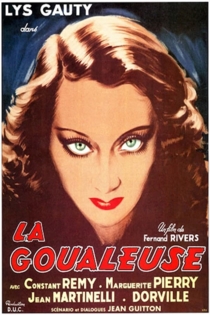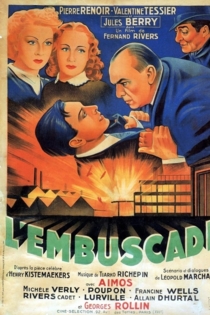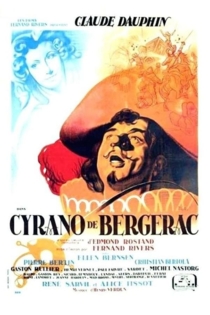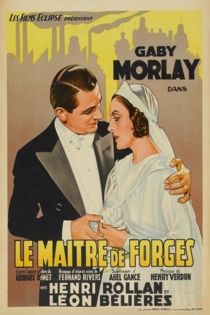
Fernand Rivers
1879 - 1960Quatre heures du matin
Fernand Rivers
Lucien Baroux, André Lefaur
Monsieur Durand-Bidon's mother-in-law is decidedly cantankerous. She never ceases - she who is a duchess - to reproach the latter for his low origins. One morning, at dawn, while he comes home "well watered", he is surprised with a comrade at the bottom of a bathtub. Taken for a homosexual, overwhelmed by Step-Mom, he will never stop trying to escape her and will end up, after many adventures, by learning a somewhat embarrassing secret about the pseudo-nobility of his step-family.
4 A.M.
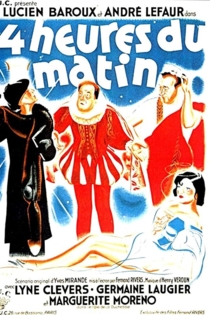
Les Mains sales
Fernand Rivers
Pierre Brasseur, Daniel Gélin
A young intellectual, Hugo, joins the Communist Party out of a sense of idealism, only to see his principles manipulated by party leaders. He is given the assignment of killing Professor Hoederer, a party deviationist. However, he grows to admire the man and begins to have doubts about morals and revolutionary politics. But jealousy - Hugo thinks Hoederer has made love to his wife, Jessica - takes matters out of the political realm.
Dirty Hands
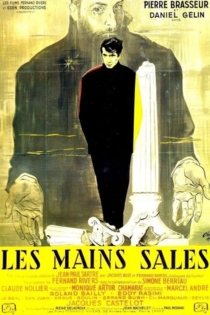
Ces dames aux chapeaux verts
Fernand Rivers, Jean Bachelet
Colette Richard, Henri Guisol
Arlette and her brother are penniless orphans; as the man is to leave for Africa to work for a long time, the young girl is forced to live with her cousins, four spinsters, who place virtue over everything.
The Ladies in the Green Hats
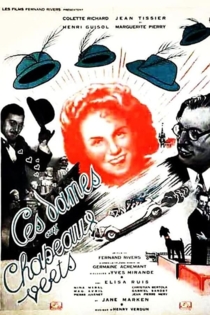
La dame aux camélias
Fernand Rivers, Abel Gance
Yvonne Printemps, Pierre Fresnay
Alexandre Dumas' romantic novel Lady of the Camelias (more popularly known as Camille) was filmed twice in 1953, first in Argentina, then in France. The Argentine film was heavily modernized, while the French version returns to Dumas' 19th-century milieu. Micheline Presle is excellent as Marguerite, the gorgeous courtesan who flits from man to man until she finds true love in the form of the much-younger Armand (Rolande Alexandre). Though he is willing to marry her despite her past, she is persuaded to forsake him, lest his reputation be ruined. The story then wends its way towards its famous tragic finale, as the consumptive Marguerite is permitted a few brief moments of happiness before her flame is permanently extinguished. Advertised as the seventh version of the Dumas classic, La Dame aux Camelias was certainly not the last.
La Dame aux camélias
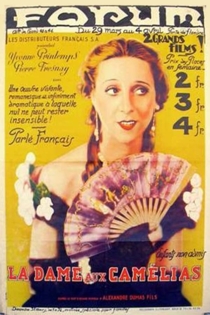
Les Deux Gosses
Fernand Rivers
Paul Barge, Rivers Cadet
The Count of Kerlor, to chastise his wife whom he believes to be unfaithful, entrusts his son to a couple of scoundrels. When he repents and wants to find the child, the carnies make their nephew sick. But the other little boy, in search of his comrade, is recognized by his reconciled parents.
The Two Boys

La Présidente
Fernand Rivers
Elvire Popesco, Henri Garat
Vérotchka, a vivacious theater actress touring in a provincial town, is turned out of her hotel by orders of Monsieur Tricointe, the stern president of the local law court. In a rage, the actress knocks at Tricointe's door with a view to protesting against the treatment she is given. She goes about it so well that she ends up being accommodated by the president himself. This is the moment Jean-Pierre Gaudet, the Minister of Justice, chooses to pay an unannounced visit to his friend Tricointe. There he mistakes Vérotchka for Madame Tricointe and the president does not dare to contradict Gaudet. A lot of absurd situations ensue.
La Présidente
